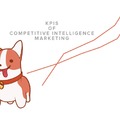There are literally hundreds of Competitive Intelligence (CI) surveys that you can find on the web, and nearly all of them start off with some sort of statistic on the prevalence of CI today in business. This number is usually between 40%-50% of businesses today that have No formal competitive intelligence function within their organization (and probably lower for Omaha companies). This number never ceases to amaze me because I know that if you looked at a different statistic, one that showed how many companies practiced some form of competitive intelligence at all within the organization you would find that number around 100%. The key word above being “formal” because all businesses are doing some sort of CI, even if it’s just data collection. It may be disconnected, unorganized and raw, but it is being done at some level inside your company.
A more interesting statistic however shows the types of companies that are utilizing a formal CI function.
- 82% of companies with annual revenues over $10 billion practice Competitive Intelligence.
- 90% of Fortune 500 Companies practice Competitive Intelligence.
Some will write off these facts as product of a company’s size, but Talon Strategy believes that companies of any size can benefit from competitive intelligence and strategy. To put it another way; how well would a CEO sleep at night knowing that his company has no formal competitive intelligence function, but his top competitor does, and they spend their days studying ways to take his company down?
Once a CEO fully understands all that a formal Competitive Intelligence function is capable of, there is no need for statistics. Unfortunately many companies, especially in Omaha, still don’t understand the value a CI function can bring to a company.
To get an idea of what kind of CI is taking place at your company, ask your company’s R&D or product development people what the next big thing will be in the marketplace, ask your sales team if they know anything about competing products and how competitive your pricing is, or ask your customer service team if they have ever heard a comparison to a competitor (they could probably rank your biggest threats). Your company’s founders had to pitch competitive advantage when your company was started and your finance team had to benchmark against competitors for investors. And these are just the most obvious examples, depending on your organization’s size you could have countless individuals keeping comparison lists, news clippings, financial reports, marketing materials etc.
So the big question becomes this: If something is so important that is seems to be essential in nearly every company, and essential in every department of every company then why are only half the companies formalizing Competitive Intelligence?
The answer is that many CEO’s still don’t see the value of formalizing CI and dedicating resources to it. Many see it as just a cost center with no direct impact on the bottom line. However if a company wants to be the best and works to get any advantage it can, adding a formal competitive intelligence function to the organization will absolutely accomplish this goal. The other reality is that it really doesn’t cost that much to formalize competitive intelligence within an organization. Sure some companies like Merk or GE spend millions on CI, but a company can add a single FTE or even half of an FTE to start seeing value from competitive data collection. Once the process begins, the value to the company becomes clear.
Another option is to outsource the CI function. This is a a low cost and effective way to get periodic strategy updates and timely competitor alerts without disrupting the current staff’s job functions. An additional benefit is that an outsourced solution removes any training and learning curves from the equation, a company can begin with a seasoned staff for less than what it would cost to pay an employee to do this.
We end with a fun illustration of how a formal CI process should work.
Jupiter Co. makes computers and sells them online. They enjoy a healthy percentage of market share for online computer sales. They have a few competitors, but none offers the price and service they offer. They are content with their market position and have no formal CI function. Pluto Tech has a small but profitable online computer sales business, they run their own website but don’t enjoy the sales that Jupiter enjoys. They are but a minor threat to Jupiter.
Inside Jupiter the following is observed within different departments regarding Pluto:
1. The CFO reads a press release that Pluto signs an agreement to sell its products at a large retail chain.
2. The Investor Relations manager reads in the latest 10-Q that Pluto has acquired XYZ Tech, a tiny technology company that makes computer hardware.
3. At a technology trade show a Jupiter sales rep. hears that Pluto’s newest computer will have a lower price point than Jupiter.
4. A Jupiter service center rep. hears from a customer that Pluto will be giving away their newest monitor as soon as it comes out, with the purchase of a new computer.
Separately these items range from “who cares” to “interesting”, but none set off major alarm bells. Now what if Jupiter had a formalized CI function which took this information and added to it the following:
 1. A search of the patent database reveals that XYZ Tech has several patents on 3-D monitor technology.
1. A search of the patent database reveals that XYZ Tech has several patents on 3-D monitor technology.
2. Found at the same trade show above, Pluto’s newest computer is coming out in 6 months and a promotion for a free monitor will run at the launch.
3. A search of the Pluto job openings reveals that they are hiring technology support managers to work in satellite offices located inside a large retail chain partner.
4. Calls to Pluto’s talent recruiting partners reveal that the retail chain is Wal-Mart.
The CI professional took seemingly unrelated pieces of data and started to piece the puzzle together. With all of this information the CI professional prepares a report for the Jupiter CEO with the following information:
Pluto Tech is launching a new PC in 6 months that has a lower price point than Jupiter. They will be giving away a new 3-D monitor with every purchase. They will sell this PC at Wal-Mart stores, and most likely on the Wal-Mart website increasing their online visibility by 400%. Service for Pluto will be enhanced by new in-store tech support reps. in Wal-Mart stores.
Now I think everyone can agree that the Jupiter CEO would much rather hear this information 6 months in advance as opposed to the day the Pluto press release comes out. And even if this report isn’t 100% accurate in its forecast, the CI rep. has exposed a potentially huge threat to Jupiter’s market share, and a possible opportunity to beat Pluto to the punch.
The story above is a very simplistic example of the impact a formalized CI function. In reality things are a bit more complex, but the biggest truth in this example is that the fog does start to clear when all the competitive data is grouped together. In reality however, the CI area must work with decision makers across the organization frequently to build competitive and market scenarios. Business is always evolving. If your business isn’t growing, it’s dying, and this is why CI is always a necessary component of any business that hopes to thrive. If you don’t have an understanding of your competitors, their revenue sources and market strategies, then you don’t have a full understanding of the market where you are competing. When decisions are made across a company, they need to be made when considering the competitive landscape if a company truly wants to stay ahead of the competition.
Forrás: http://www.talonstrategy.com/2011/10/the-value-of-competitive-intelligence/







